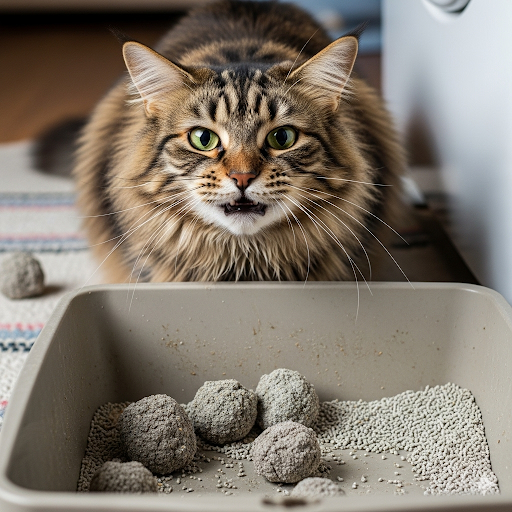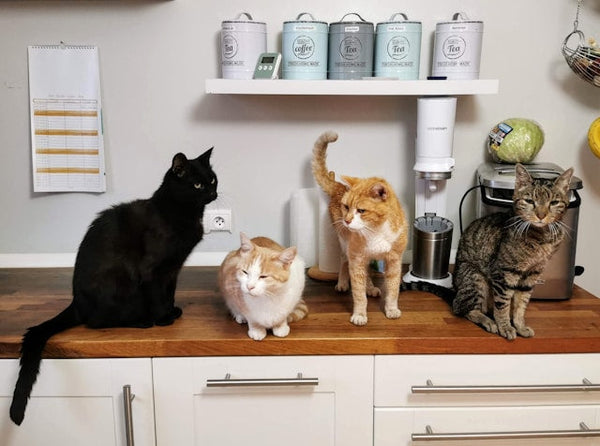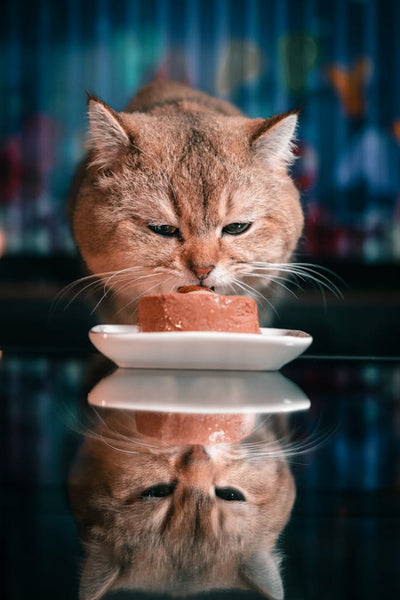
When it comes to choosing between a male or female cat, one practical question often arises: Do male and female cats have different litter box habits? The answer is yes—sometimes. While all cats are individuals and personality plays a huge role, there are a few sex-related tendencies worth noting.
In this blog, we’ll break down the differences in litter box behavior between male and female cats, explore different types of litter boxes, and give you tips to keep things clean and stress-free—no matter who’s using the box!
1. Spraying and Marking Behavior
🚹 Male Cats:
Unneutered males are much more likely to spray urine to mark territory. This can happen inside the litter box or on nearby vertical surfaces. Spraying often decreases or stops once the cat is neutered.
🚺 Female Cats:
Females spray less often, but unspayed females might mark when in heat or if feeling territorial or anxious. Spaying generally eliminates this behavior.
2. Cleanliness and Tidiness
Female Cats:
Often more meticulous, female cats may insist on a clean box and take extra care in burying their waste. Some may even refuse to use a litter box that isn’t pristine.
Male Cats:
Male cats, especially if neutered, usually have good litter habits but may be less fastidious about covering their waste or may tolerate a slightly dirtier box for longer.
3. Health Concerns That Affect Litter Habits
Males:
Male cats are prone to urinary blockages, a serious condition that can cause inappropriate urination or straining near the box.
Females:
While blockages are less common in females, they can still develop UTIs or bladder inflammation, which may also cause them to avoid the litter box.
4. Litter Box Territorial Issues
Multi-cat households can lead to territorial problems, especially among unneutered males. Guarding or blocking access to the litter box is a common issue.
-
Solution: Offer multiple boxes in different locations
-
Rule: One box per cat, plus one extra
5. Types of Litter Boxes: Which One Is Right for Your Cat?
The type of litter box you choose can impact how comfortably your cat uses it. Different personalities—and even male vs. female cats—may show preferences for specific box types.
🟩 Open (Uncovered) Litter Boxes
Pros:
-
Easy access for all cats
-
Better airflow and less odor build-up
-
Easier to monitor usage and cleanliness
Cons:
-
Odors are more noticeable to humans
-
Can be messy if your cat kicks litter
Best for: Most cats, especially those who dislike enclosed spaces or are larger males
🟦 Covered (Hooded) Litter Boxes
Pros:
-
Contains litter scatter and odors
-
Offers privacy, which some female cats prefer
Cons:
-
Can trap odors inside, making it unpleasant for the cat
-
Not ideal for large cats or those with mobility issues
Best for: Shy or privacy-seeking cats (often females), single-cat homes
🟧 Top-Entry Litter Boxes
Pros:
-
Reduces litter tracking and young children access
-
Contains messes well
Cons:
-
Can be hard for kittens, elderly, or arthritic cats to enter
-
Not ideal for large males
Best for: Agile cats in small or tidy homes
🟥 Automatic Self-Cleaning Litter Boxes
Pros:
-
Convenient for owners
-
Encourages cleanliness if maintained properly
Cons:
-
Expensive
-
Some cats fear the noise or motion
-
May not detect small cats or multiple uses in quick succession
Best for: Tech-savvy households with low-shedding, adaptable cats
🟨 High-Sided Litter Boxes
Pros:
-
Prevents litter spillage and urine spray (especially from males)
-
Great for messy diggers
Cons:
-
Not suitable for kittens or elderly cats who can't step over the edge
Best for: Spraying males, dig-happy cats, or homes with limited space
6. Training and Preferences
Both male and female cats can be trained to use any type of box, but respecting their preferences is key. Some cats dislike enclosed boxes or certain types of litter. Pay attention to what your cat likes—and dislikes.
Final Thoughts
While male and female cats can differ in their litter box habits, the right setup—including box type, placement, and cleanliness—can solve most problems. Whether you have a curious tomcat or a picky princess, taking the time to understand their needs will lead to a much happier (and cleaner) home.
🧼 Litter Box Tips for All Cats:
-
Scoop daily and deep-clean weekly
-
Offer multiple box types if needed
-
Avoid scented litters that may irritate sensitive cats
-
Monitor for signs of discomfort or medical issues



